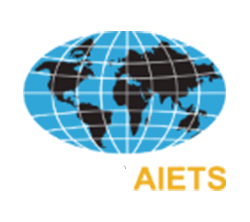- Members
- Global S W Docs
- Newsletter
- News
- Regions
- About Us
- Committees
IASSW PROGRAMME CONSULTATIONS – SELF APPRAISAL
This structure is intended to be a general guideline, and may be adapted to fit local circumstances
The Programme Consultation Self-Appraisal is prepared by the Local Consultation Team. The Self-Appraisal should be sent to the named person in the IASSW Consultation Team at least 30 days before the start of the Consultation.
The appraisal should contain the following:
1. INTRODUCTION
1.1 Name of the University
1.2 The Programmes to be included in the Programme Consultation
1.3 Background of the consultation: Reason for the consultation
1.4 Composition of the local consultation team (names, roles)
1.5 Dates and place of the consultation
1.6 Staff of institution involved in the consultation, and nature of their involvement
1.7 Clarify the use of the Programme’s own goals and the Global Standards including any specific questions raised by the Programme’s administrators at beginning of consultation
2. PROGRAMME OVERVIEW
2.1 Brief history of the programme
2.2 Vision and Mission
2.3 Programmes offered: goals, objectives and outcomes
3. CURRICULUM
3.1 Core curriculum
3.2 Electives (if any)
3.3 Programme resources (library, hard copy, soft copy, other resources)
3.4 Teaching support
3.5 Responsiveness to national/regional environments
4. FIELD EDUCATION
4.1 Field Curriculum
4.2 Nature, number and duration (days) of placements
4.3 Range of field placements
4.4 Training, orientation and support for field educators
4.5 Supervision requirements for students in placement
5. TEACHING STAFF
5.1 Number of staff, qualifications, nationally registered (if applicable),
5.2 Areas of expertise, practice, and/or research
5.3 Research and publication records
5.4 National and/or international engagement
6. STUDENTS
6.1 Recruitment and admissions processes
6.2 Number and types (local or national, diversity) of students
6.3 Staff/student ratios
6.4 Student advice and support to widen access (including student aid, scholarships)
6.5 Student throughput (number completing the course, dropouts etc)
6.6 Employment on completing qualifying training, type and employment rate.
7. STRUCTURE, ADMINISTRATION AND RESOURCES
7.1 Structure of programme administration
7.2 Relationship of programme to institutional structure, other programmes within the institution
7.3 Resourcing, including non-academic staff and budget; stability of resourcing
7.4 Fees and financial assistance for students
8. DIVERSITY AND GENDER INCLUSIVENESS
8.1 The mission statement for the programme with regards diversity
8.2 The measures are taken in all aspects of the programme to ensure that diversity is respected, promoted and monitored
9. VALUES AND ETHICAL CODES OF CONDUCT
9.1 The Values and Ethical Codes of Conduct (national, local, university and departmental)
9.2 Promotion of Values and Ethics in all aspects of the programme
10. LOOKING FORWARD
10.1 Assessment of Programme’s own goals for future
10.2 Plans for development or changes in programmes/qualifications
11. AREAS OF COMMENDATION, CONCERN AND RECOMMENDATIONS
11.1 Commendations
11.2 Concerns
11.3 Recommendations

